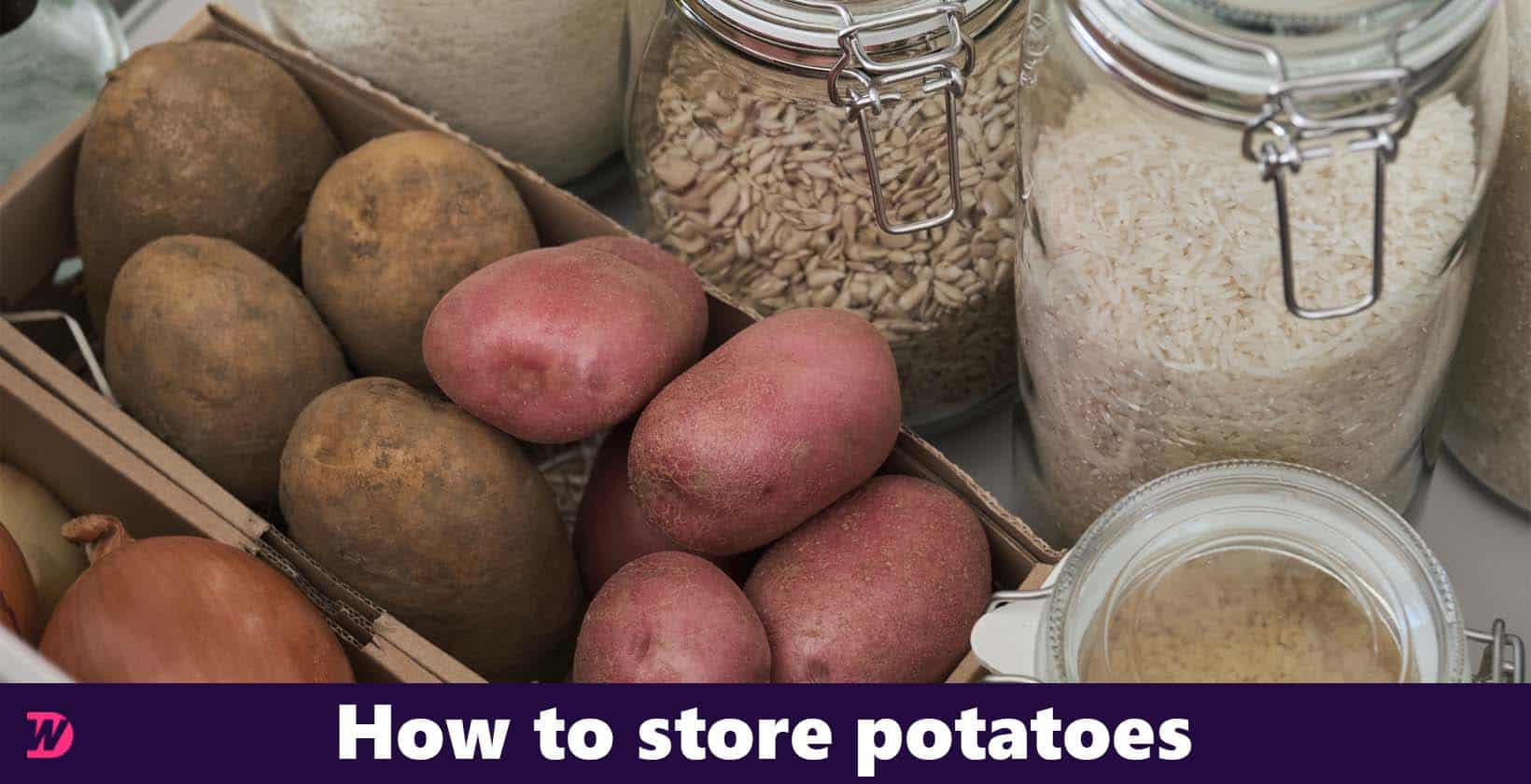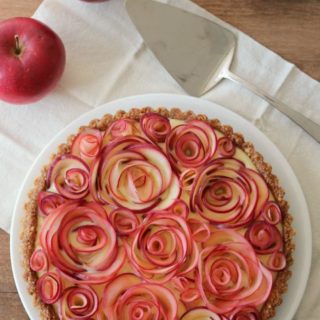Proper potato storage is crucial for maintaining their freshness and taste. Improper storage can lead to spoilage, which not only results in the loss of the product but also poses a potential health risk for consumers. To extend their shelf life and maintain their quality, the best methods for storing potatoes are pantry storage, refrigerator storage, and root cellar storage. The pros and cons of each method are evaluated based on factors such as temperature, humidity, light exposure, and airflow. Our research explores additional tips for storing potatoes such as the effects of ethylene gas and internal spoilage, ensuring food security and reducing food waste.
VIEW IN GALLERY
Storing Potatoes in a Pantry
Storing potatoes in a pantry is a popular method because it is easy and convenient. It is important to note that potatoes should be stored in a cool, dark, and dry place. Exposure to light and heat can cause potatoes to sprout and deteriorate. When storing potatoes in a pantry, it is best to use a perforated or ventilated container to promote air circulation. This will help prevent moisture buildup and mold growth. Avoid storing potatoes near onions, as the gases emitted by onions can cause potatoes to spoil more quickly.
The pros and cons of pantry storage for potatoes are below.
Pros:
- Convenient: Storing potatoes in a pantry is easy and convenient, as it allows you to keep them close at hand.
- Space-saving: A pantry is typically a large, open space that can accommodate a lot of potatoes. This makes it a good option if you have a large quantity of potatoes to store.
Cons:
- Temperature and light: Potatoes should be stored in a cool, dark place to prevent them from sprouting and deteriorating. A pantry may not always be the best location if your kitchen is exposed to high temperatures and bright light.
- Moisture: Pantries can be prone to moisture buildup, especially if they are not well-ventilated. This can lead to mold growth on the potatoes and make them spoil more quickly.
- Odors and gases: Pantries can also be affected by odors and gases from other foods, such as onions. This can cause potatoes to spoil more quickly if they are stored near these foods.
It’s important to keep in mind that potatoes should be kept in a cool, dark and dry place and avoid storing them near other foods that emit odors or gases. A perforated or ventilated container can help to promote air circulation and prevent moisture buildup and mold growth.
Storing Potatoes in the Refrigerator
While it may seem counterintuitive, storing potatoes in the refrigerator can actually extend their shelf life. However, it is important to note that cold temperatures can cause potatoes to develop a sweet taste and become less firm. To prevent this, it is best to store potatoes in a paper bag or a perforated plastic bag before placing them in the refrigerator. Do not wash the potatoes before storing them in the refrigerator, as the excess moisture can cause them to rot.
The pros and cons of refrigerator storage for potatoes are below.
Pros:
- Extended shelf life: Cold temperatures can help to slow down the natural enzymes that cause potatoes to sprout and spoil. This means that storing potatoes in the refrigerator can extend their shelf life.
- Reduced sprouting: Potatoes that are stored in the refrigerator are less likely to sprout, which can be a big advantage if you want to keep them fresh for an extended period of time.
Cons:
- Temperature changes: Potatoes should be stored at temperatures between 35-40°F (1.7-4.4°C) to maintain their quality. Temperatures that are too cold or too warm can cause potatoes to develop a sweet taste and become less firm.
- Moisture: Potatoes should not be washed before storing them in the refrigerator, as the excess moisture can cause them to rot. If you store them in a paper or perforated plastic bag, it can help absorb the excess moisture.
- Ethylene gas: Potatoes should be kept away from fruits that produce ethylene gas, such as apples and bananas, as it can cause them to ripen and spoil more quickly.
In summary, refrigeration can help to extend the shelf life of potatoes, but it is important to store them at the right temperature and avoid moisture buildup. To reduce sprouting and preserve the texture and taste, it is best to store them in a paper or perforated plastic bag before placing them in the refrigerator. Additionally, potatoes should be kept away from fruits that produce ethylene gas.
Storing Potatoes in a Root Cellar
A root cellar is the ideal storage method for potatoes, as it provides the cool and dark environment they need to stay fresh. Root cellars are typically underground or partially underground structures that are designed to maintain a consistent temperature and humidity level. If you do not have a root cellar, you can mimic the conditions by storing potatoes in a cool, dark, and well-ventilated area, such as a basement or garage. Be sure to keep potatoes off the ground and away from any sources of heat or light.
The pros and cons of root cellar storage for potatoes are below.
Pros:
- Ideal conditions: Root cellars are typically underground or partially underground structures that are designed to maintain a consistent temperature and humidity level. These conditions are ideal for storing potatoes, as they need to be kept in a cool, dark and humid environment to stay fresh.
- Long-term storage: Potatoes can be stored in a root cellar for several months, which makes it a great option if you want to store a large quantity of potatoes for an extended period of time.
Cons:
- Accessibility: Not everyone has a root cellar, so this storage option may not be feasible for everyone.
- Maintenance: Root cellars need to be properly maintained to ensure that the temperature and humidity levels remain consistent. This can be a bit of a hassle, as you need to monitor the conditions and make adjustments as needed.
- Cost: Building or converting a space into a root cellar can be quite costly.
In summary, root cellars are the ideal storage method for potatoes as they provide the cool, dark and humid environment that potatoes need to stay fresh. However, not everyone has a root cellar, and it can be costly to build or convert a space into one. Additionally, root cellars need to be properly maintained to ensure that the temperature and humidity levels remain consistent.
Additional Tips for Storing Potatoes
Potatoes are a staple food crop that are commonly stored for long periods of time in order to maintain their freshness. However, as potatoes age, they can begin to deteriorate and become less desirable for consumption. In order to determine whether potatoes are still fresh, several factors should be considered.
One of the most obvious indicators of potato spoilage is the presence of mold or rot. Potatoes that are contaminated with mold or rot should be discarded immediately, as they can pose a health risk if consumed. Additionally, potatoes that are soft or wrinkled may also be spoiled and should not be consumed. Another indicator of potato spoilage is the presence of sprouts. Potatoes that have sprouted have begun to germinate, which can indicate that they are no longer fresh. This is because sprouting is a sign that the potato is actively growing and using up its stored energy reserves. In addition to these visual indicators, the smell of potatoes can also be used to determine whether they are still fresh. Potatoes that have spoiled will often have a strong, musty odor that is indicative of decay. On the other hand, fresh potatoes will have a mild, earthy smell. Finally, it’s important to note that potatoes can also be affected by internal spoilage, which is not always visible on the surface. This can happen when potatoes are stored at high temperatures or exposed to light, causing them to develop a sweet taste and become less firm. Potatoes that show any of these signs of spoilage should be discarded and not consumed.
Some additional tips for storing potatoes are below.
- Always check potatoes for any signs of spoilage before using them. Discard any potatoes that are soft, wrinkled, or have mold or rot.
- Do not store potatoes near apples, as the ethylene gas emitted by apples can cause potatoes to sprout and spoil more quickly.
- Different types of potatoes have varying storage requirements. For example, new potatoes should be used within a week of harvest, while mature potatoes can be stored for several months.
How do farmers store potatoes?
Farmers store potatoes by using a combination of methods, depending on their storage capacity, climate, and specific needs of the crop. They use controlled environment, field curing, and specific storage systems to ensure that their potatoes are stored in the best possible conditions, maintaining their quality and reducing spoilage.
Is it OK to eat potatoes that have sprouted?
Ppotatoes that have sprouted are still safe to eat. It is recommended to remove the sprouts as they can be bitter, and to use them as soon as possible as they can continue to grow and the potato will become less desirable over time. Also, it’s important to be aware of the size of the sprouts, as large sprouts can contain solanine, a chemical that can cause illness if consumed in large amounts.
What can you do with old potatoes?
There are many ways to use old potatoes, including composting, feeding them to livestock, using them as seed potatoes, making potato skins, potato starch, potato vinegar, potato crafts, and using them as fertilizer in the garden.
Should you wash freshly dug potatoes before storing them?
It is not recommended to wash freshly dug potatoes before storing them. Washing them can cause damage to the potato skin, increase the moisture content, and affect the taste and texture of the potatoes. Instead, it’s recommended to gently brush off any excess dirt and debris before storing them, and only wash them just before using them.
Conclusion
By following these storage methods and tips, you can ensure that your potatoes stay fresh and delicious for as long as possible. Whether you choose to store them in a pantry, refrigerator, or root cellar, be sure to keep them in a cool, dark, and well-ventilated place. Remember to regularly check for signs of spoilage and discard any potatoes that are no longer fresh. Happy cooking!



















